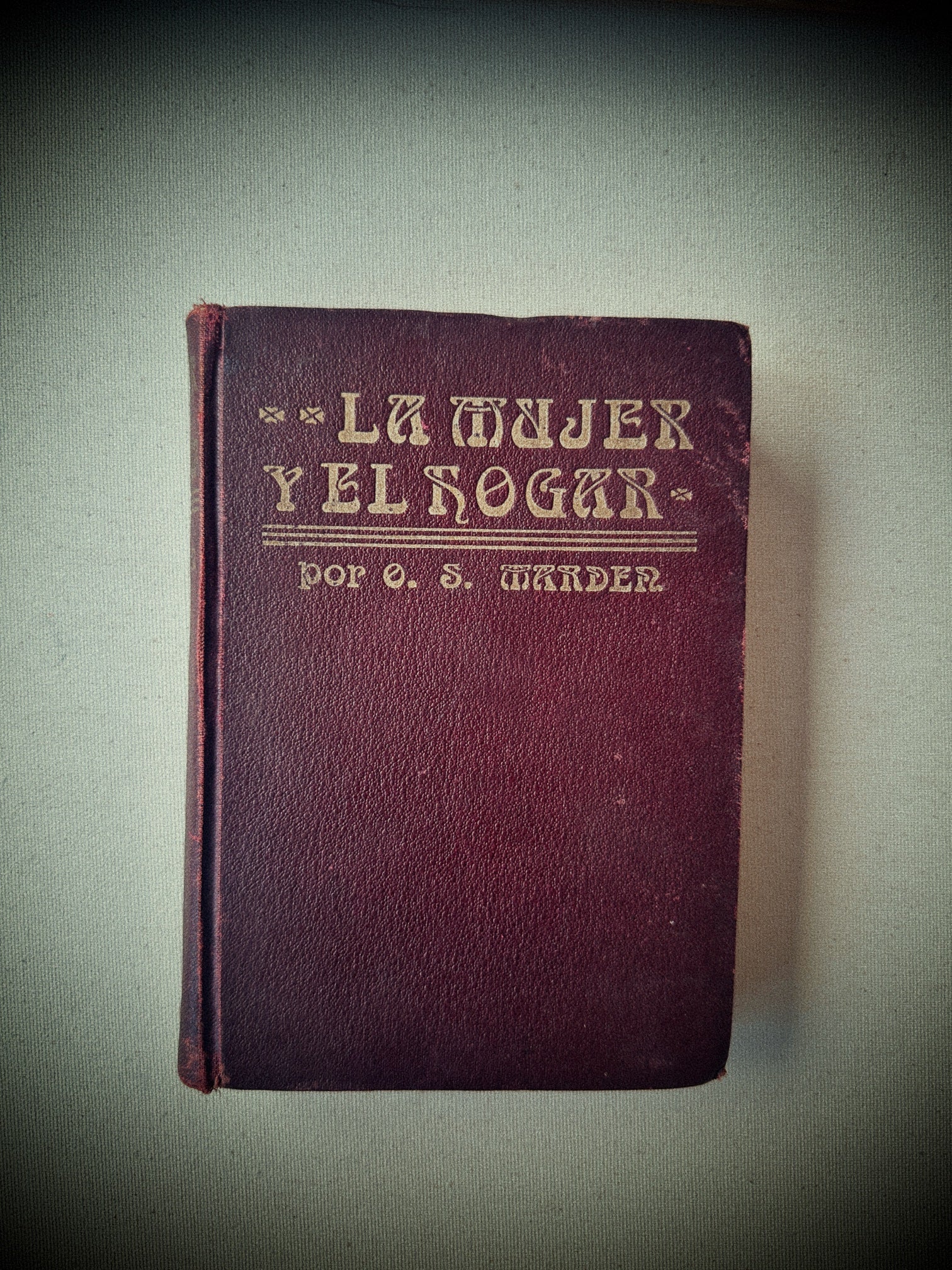
La Mujer y el Hogar – Orison Swett Marden, translated by Federico Climent Terrer (Barcelona, Librería Parera de Antonio Roch, ca. 1920s)
Description
Bound in burgundy cloth with gilt lettering on the spine, this Spanish edition of Orison Swett Marden’s work retains the elegance of early 20th-century publishing. The cover shows modest shelf wear, while inside, a sepia portrait of Marden greets the reader, accompanied by patterned endpapers. Its typography and paper stock are typical of Barcelona presses of the era.
History & Interest
Marden (1850–1924) was a pioneer of the American self-help movement, whose writings on discipline, optimism, and moral progress found wide readership worldwide. This Spanish edition, translated by Federico Climent Terrer, extends his influence into Iberian and Latin American circles. The subtitle frames it as an “impartial study of the feminist movement of our time,” a fascinating cultural artifact of early 20th-century Spain, where feminist ideas were cautiously entering mainstream discourse.
Age
Likely published between 1915 and 1925. This makes the book about 100–110 years old (as of 2025).
Obscure Lore
Though Marden was not a radical feminist, his ideas here bridge emancipation with traditional values — urging recognition of women’s intellectual and social contributions while grounding them in ideals of family and morality. In Spain, such works often circulated quietly, more progressive than the Church-approved norm, yet still palatable to conservative readers.
Modern Appeal
The book stands as both a piece of feminist history and a testament to global intellectual exchange in the early 20th century. It embodies the tension of its time — balancing tradition with the first stirrings of social reform — and makes for a compelling collectible for those interested in women’s history, philosophy, or Spanish publishing.
